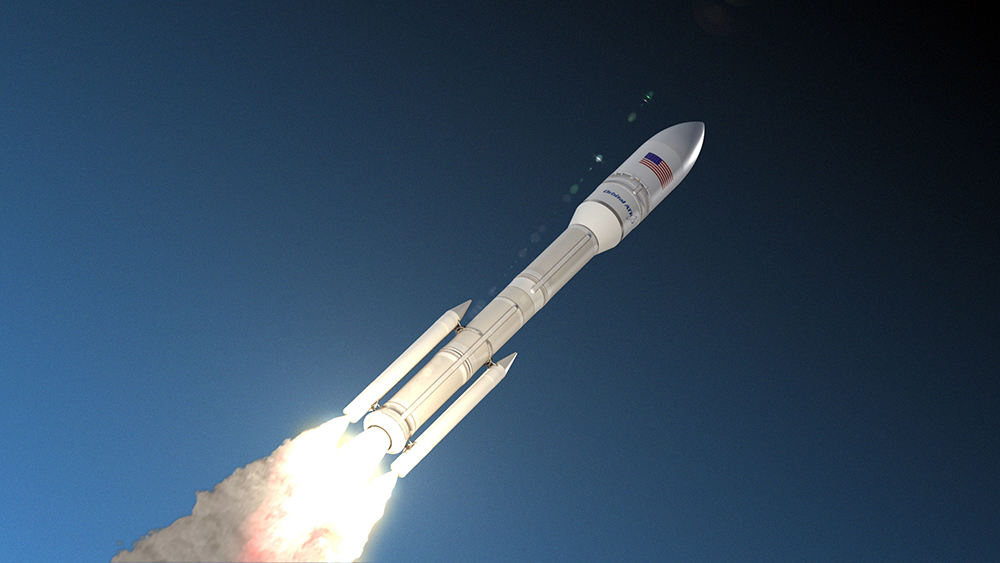The company's intermediate/heavy OmegA launch vehicle will compete with offerings from United Launch Alliance (ULA), SpaceX and Blue Origin.
Orbital ATK has further revealed details of its OmegA launch vehicle for the U.S. Air Force Evolved, Expendable Launch Vehicle (EELV) programme. The launcher — previously known as the Next Generation Launch System (NGLS) — will compete with offerings from United Launch Alliance (ULA), SpaceX and Blue Origin.
The company states that OmegA will provide intermediate- to heavy-class launch services for the Department of Defense, civil government and commercial customers beginning in three years.
OmegA represents the top end of the company’s rocket lineup, from interceptors and targets to small-class (Pegasus and Minotaur), medium-class (Antares) to now large-class.
OmegA is a three-stage rocket augmented by adding up to six strap-on boosters — the same as those produced for the Delta 4 and Atlas 5. The first and second stages are the company’s large-class solid propellant motors with composite cases, based on the Space Shuttle's SRB boosters. These can be configured in various combinations to build first and second stage boosters for intermediate- and heavy-class configurations.
OmegA’s cryogenic third stage is powered by Aerojet Rocketdyne’s RL10C engine, already used by ULA. The vehicle also incorporates Orbital ATK large composites interstages and 5m fairing.
Orbital ATK notes the potential synergies with other parts of the company, e.g. launches carrying Orbital ATK-manufactured satellites.
The company reports that it has built four of the large composite motor cases, two of which are insulated and machined and ready for the first cast next week. The programme is on track to complete static tests of the first and second stages by mid-2019. The company is currently building tooling for the upper stage and will start producing propellant tanks early next year.
Major design reviews for the launch vehicle and launch site at Kennedy Space Center are scheduled for this summer.
Initial flights of the launcher's intermediate configuration are planned for early 2021, which will certify the vehicle for EELV missions later that year. Initial heavy configuration certification flights are slated to begin in 2024.
Orbital ATK was acquired by Northrop Grumman in a $9.2bn deal announced in September and expected to close in the first half of 2018.

